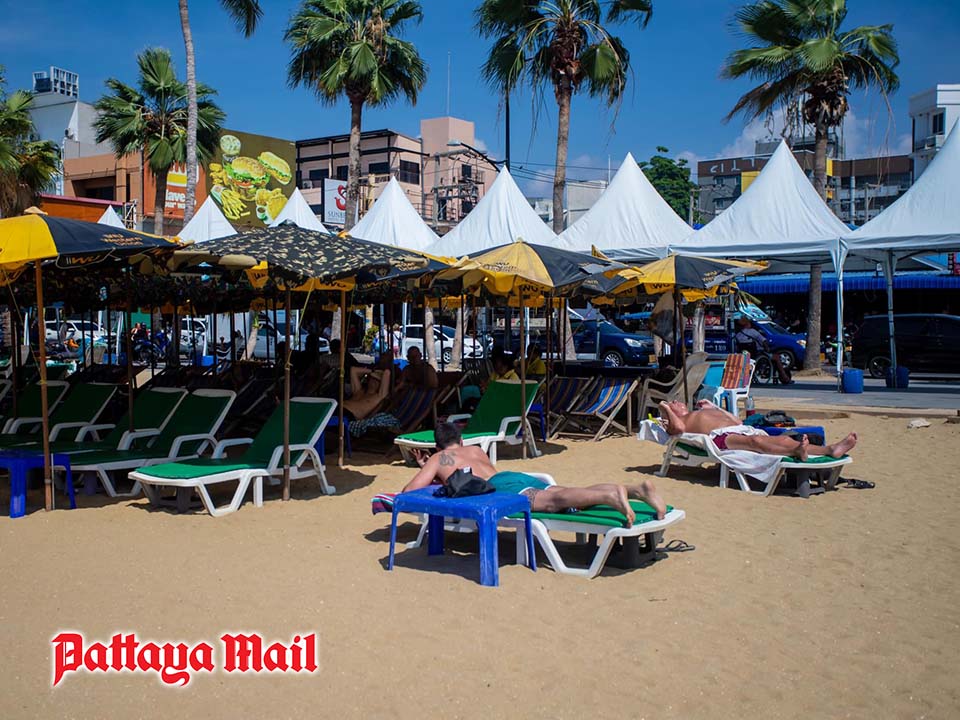Strong baht may offset hotel deals and breezier streets in Pattaya, say tourists eyeing value
Between Recovery and Resistance: As Pattaya seeks to attract more foreign visitors, the strong baht remains a stubborn barrier to free-spending holidays. (Photo by Jetsada Homklin)
PATTAYA, Thailand – Despite alluring hotel promotions, thinner crowds, and cleaner air during the off-season, international visitors are finding that the strong Thai baht is beginning to undercut the value Pattaya once promised.
On July 4, the baht closed at 32.35 to the U.S. dollar, slightly stronger than the previous day’s close of 32.38. Although the currency weakened in the morning session following stronger-than-expected U.S. labor market data, it recovered in the afternoon as the dollar’s momentum faded due to cautious sentiment ahead of crucial U.S. trade negotiations, with a July 9 deadline looming.
In the broader picture, the baht’s trading range next week is expected between 32.00–32.80, as markets monitor multiple economic indicators — including Thailand’s June inflation numbers, foreign fund flows, and U.S. Federal Reserve meeting minutes. Meanwhile, foreign investors sold off 2.3 billion baht in Thai equities and nearly 1.5 billion baht in bonds, suggesting persistent caution in emerging markets.
The euro currently trades at 38 baht, and the British pound at 44 baht, making even budget-conscious European travelers feel the pinch. One long-time British visitor commented, “The beach is peaceful, the roads are breathable for once, and my usual hotel gave me a 30% discount. But with the pound where it is, I’m still spending more on everyday things than I did five years ago.”
Local businesses have taken notice. While hotel occupancy has risen modestly due to aggressive promotions, daily spending among foreign tourists has noticeably dropped. “They stay, but they don’t splurge,” said a manager at a central Pattaya guesthouse. “It’s the exchange rate — not the room rate — that’s hurting them.”
The strong baht continues to be a double-edged sword for Pattaya. While it signals relative economic stability and confidence in Thai assets, it also challenges the city’s recovery model, which relies heavily on foreign spending. Some tourists are shifting their priorities. “With food prices up and the euro this weak, I’ve skipped island trips this year,” said a German retiree staying in Jomtien. “I’m here for the warmth and peace, but not to burn through my savings.”
Still, for now, Pattaya’s silver lining may be its timing: a lull in mass tourism, clearer air from recent rains, and room rates that remain the most competitive in Southeast Asia — even if the baht does take back part of the bargain.



